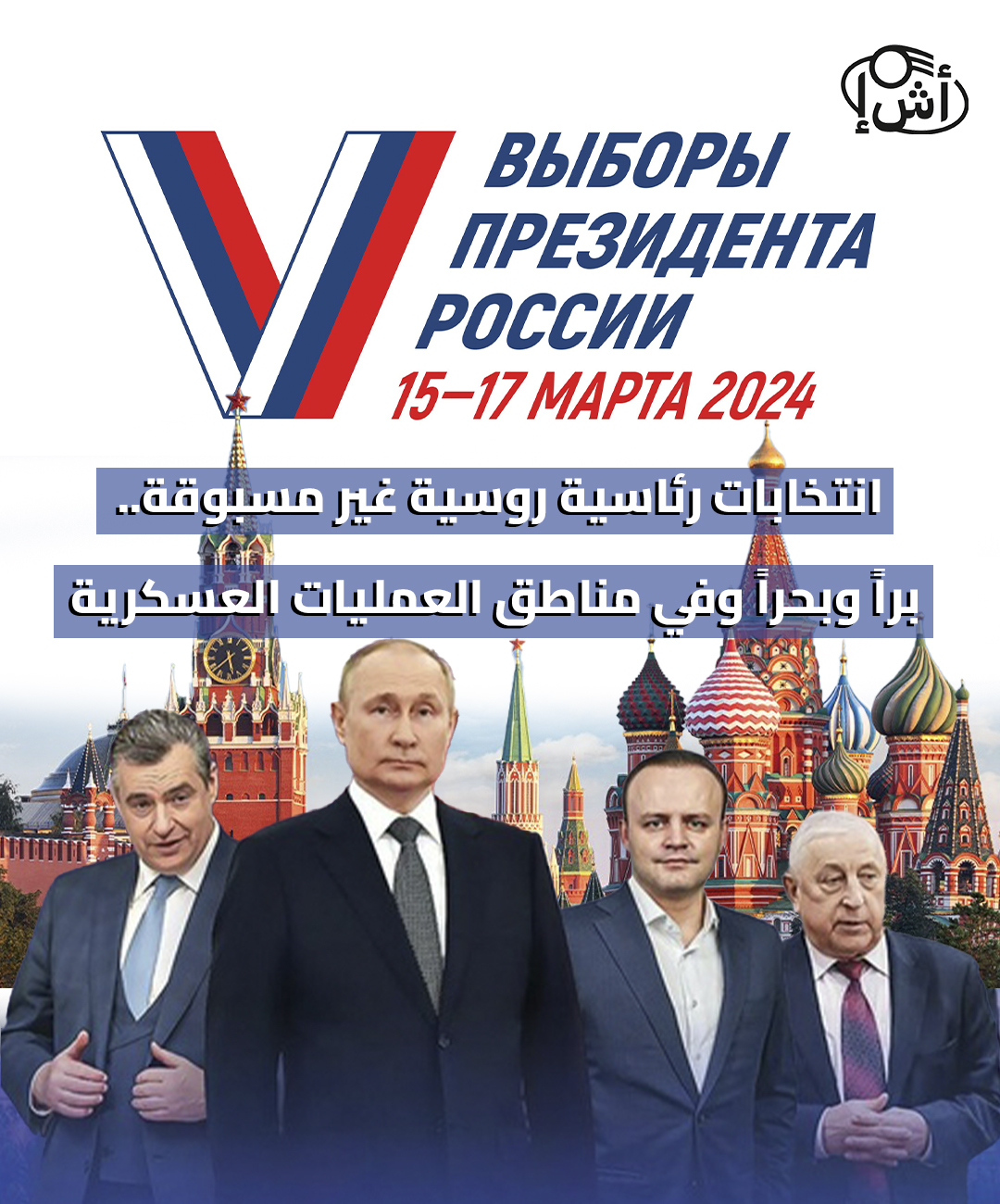More than 114 million Russians, at home and abroad, choose their next president for a six-year term.
Russia’s presidential election, the eighth since the dissolution of the Soviet Union, and being held over three days for the first time in the country’s history, was preceded by preparations and continuous work to secure the ballot boxes for voters around the world.
Before the start of the elections, ballot boxes were transported to remote areas by air and through machinery.

New Russian regions are running, for the first time, the presidential elections, after returning two years ago, as early elections were held in Zporizhia, Kherson, Donetsk, and Lugansk with early ballots from the twenty-fifth of February until hours before the start of the elections in all Russia.
After casting his vote, Kherson provincial governor Vladimir Saldo wrote on his Telegram channel: “A historic moment has come, polling stations for the Russian presidential election have opened their doors in Kherson.”

In turn, the President of the Donetsk People’s Republic, Denis Pushilin, wrote after casting his vote, on his Telegram channel: “The people of the republic are participating in the elections of the president of our country for the first time, we were all waiting for this day.”

Early voting included members and officers of combat and auxiliary ships from the Black and Pacific fleets, military, and civilian personnel of the Russian army’s group of forces operating in Syria.

Russian soldiers fighting in the special operations areas also participated in the early elections, with soldiers of the automatic rifle units of the “West” Forces Group, the 36th Joint Arms Army of the “East” Forces Group in the Special Operations Zone, and the 29th Army of the “East” Forces Group in Donbass, casting their votes.

Four candidates are competing in the elections: President Vladimir Putin as an independent candidate, Leonid Slutsky for the Russian Liberal Democratic Party, Nikolai Kharitonov for the Russian Communist Party, and Vladislav Davankov for the New People’s Party.
The Russian Federation has designated 295 polling stations for presidential elections abroad, in 144 countries, so that Russian citizens can participate. The number of polling stations is lower than in the previous election, when 401 sites were opened in 145 countries.
The reduction of early voting places abroad at the CEC is linked to unfriendly actions taken against Russian diplomatic missions.
The number of voters exceeds 112 million on the territory of Russia and reaches about two million abroad.

About 4,000 voters from remote hard-to-reach areas participated in early voting in the Chukotka Okrug (in Russia’s far northeast), and according to the head of the regional election commission, Nikolai Goncharov, members of the local election commissions boarded helicopters and all-terrain vehicles.

In the Khabarovsk Territory (in the Far East to the Republic of Russia, which lies on the Amur River, 20 km from the border with the People’s Republic of China and 6,100 km from the capital Moscow in a straight line), a large number of remote communities can only be reached by air.
Some 12,900 voters had the possibility of early voting in Yakutia (Russia’s Far East, the largest autonomous region in the world), about 15,000 voters in Magadan (Russia’s far northeast) and more than 5,000 in the Amur region (Russian Far East).
49 people drowned in one day in Russia
